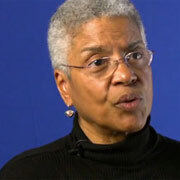Items
Array is exactly
Rutgers University-New Brunswick
-
 Interview: Alexander, Walter G. II, 2009 Dr. Alexander was born in 1922 in Petersburg, Virginia. He attended Orange High school in New Jersey before he was accepted to Rutgers on a scholarship. He was a member of ROTC, the engineering program, and the Rutgers track team. A Tuskegee Airman, he graduated from Rutgers with a degree in mechanical engineering, then went to work for Douglas Aircraft as a draftsman in California. He enlisted in the USAAF in 1944 and trained at Keesler and Tuskegee Army Airbases as a fighter pilot. World War II ended before he was deployed. He later attended Howard University's dental school and became a distinguished dentist in New Jersey. Dr. Alexander was inducted into the Hall of Fame of the Rutgers African-American Alunni Alliance in 2007. He was inducted into the Rutgers Hall of Distinguished Alumni in 2009.
Interview: Alexander, Walter G. II, 2009 Dr. Alexander was born in 1922 in Petersburg, Virginia. He attended Orange High school in New Jersey before he was accepted to Rutgers on a scholarship. He was a member of ROTC, the engineering program, and the Rutgers track team. A Tuskegee Airman, he graduated from Rutgers with a degree in mechanical engineering, then went to work for Douglas Aircraft as a draftsman in California. He enlisted in the USAAF in 1944 and trained at Keesler and Tuskegee Army Airbases as a fighter pilot. World War II ended before he was deployed. He later attended Howard University's dental school and became a distinguished dentist in New Jersey. Dr. Alexander was inducted into the Hall of Fame of the Rutgers African-American Alunni Alliance in 2007. He was inducted into the Rutgers Hall of Distinguished Alumni in 2009. -
Interview: Amutah, Ndidi, 2016Ndidi Amutah was born in Trenton, New Jersey, in 1981 to Nigerian parents. Dr. Amutah grew up in Trenton and graduated from Trenton Central High School in 1999. She attended Livingston College at Rutgers, where she was active in the Livingston College Governing Association. After graduating from Livingston in 2003 with a B.A. in African Studies and a B.S. in Public Health, she earned a Master's in Public Health at George Washington University. Dr. Amutah attended the University of Maryland, College Park and studied maternal child health for her Ph.D. Dr. Amutah completed a Kellogg Foundation postdoctoral fellowship, served as a professor at Montclair State University, and then became a professor of public health and community medicine at the Tufts University School of Medicine.
-
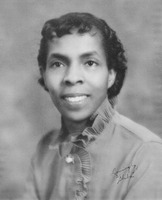 Interview: Archibald, Alice Jennings, 1997 Mrs. Alice Jennings Archibald was born and raised in New Brunswick New Jersey and graduated from New Brunswick High School in 1923 as salutatorian of her class. She attended Howard University and graduated there in 1927 with her Bachelor’s Degree, and also received a Bachelor’s Degree from the University of Cincinnati in 1928. Mrs. Archibald became the first African-American woman to graduate from the Rutgers Graduate School of Education in 1938. During World War II, Mrs. Archibald worked for Raritan Arsenal as a completion clerk and a neighborhood Air Warden. After the war, she joined the staff of the New Brunswick Urban League as assistant to the executive director in 1946 and then worked at the Employment Office as a counselor. With the Urban League, Mrs. Archibald hired the first black man to Johnson and Johnson, and hired the first black teachers in New Brunswick. She continued as a counselor until her retirement in 1972. Mrs. Archibald was a life-long member of the Mount Zion AME Church of New Brunswick, where she served as the church historian.
Interview: Archibald, Alice Jennings, 1997 Mrs. Alice Jennings Archibald was born and raised in New Brunswick New Jersey and graduated from New Brunswick High School in 1923 as salutatorian of her class. She attended Howard University and graduated there in 1927 with her Bachelor’s Degree, and also received a Bachelor’s Degree from the University of Cincinnati in 1928. Mrs. Archibald became the first African-American woman to graduate from the Rutgers Graduate School of Education in 1938. During World War II, Mrs. Archibald worked for Raritan Arsenal as a completion clerk and a neighborhood Air Warden. After the war, she joined the staff of the New Brunswick Urban League as assistant to the executive director in 1946 and then worked at the Employment Office as a counselor. With the Urban League, Mrs. Archibald hired the first black man to Johnson and Johnson, and hired the first black teachers in New Brunswick. She continued as a counselor until her retirement in 1972. Mrs. Archibald was a life-long member of the Mount Zion AME Church of New Brunswick, where she served as the church historian. -
 Interview: Bethel, Leonard, 2021 Dr. Leonard Bethel is a Professor Emeritus in the Department of Africana Studies at Rutgers. He was born in 1939 in Philadelphia, Pennsylvania. In the interview, he describes growing up in the predominantly Black neighborhood of West Philadelphia, being involved in the Fellowship House, through which he became exposed to the Civil Rights Movement, and working at La Citadelle Camp, operated by activist and educator Layle Lane. After attending Lincoln University for his undergraduate degree, he earned a Master of Divinity at Johnson C. Smith University, during which time he was active in desegregation efforts in North Carolina. He earned a Master of Arts in Theology at New Brunswick Theological Seminary (NBTS) and received a doctorate at the Rutgers Graduate School of Education. He became an ordained Presbyterian minister in 1964. After coming to Rutgers in 1969, he worked to establish the Department of Africana Studies, chaired the department for fifteen years, and served as a faculty member for forty-two years. Through his ministry, he became involved in the anti-apartheid movement, as well as in community service organizations and initiatives. A long-time resident of Plainfield, he served as the pastor at Bethel Presbyterian Church. He is the author of numerous books and articles including Educating African Leaders: Missionism in America and La Citadelle: Layle Lane and Social Activism in 20th Century America.
Interview: Bethel, Leonard, 2021 Dr. Leonard Bethel is a Professor Emeritus in the Department of Africana Studies at Rutgers. He was born in 1939 in Philadelphia, Pennsylvania. In the interview, he describes growing up in the predominantly Black neighborhood of West Philadelphia, being involved in the Fellowship House, through which he became exposed to the Civil Rights Movement, and working at La Citadelle Camp, operated by activist and educator Layle Lane. After attending Lincoln University for his undergraduate degree, he earned a Master of Divinity at Johnson C. Smith University, during which time he was active in desegregation efforts in North Carolina. He earned a Master of Arts in Theology at New Brunswick Theological Seminary (NBTS) and received a doctorate at the Rutgers Graduate School of Education. He became an ordained Presbyterian minister in 1964. After coming to Rutgers in 1969, he worked to establish the Department of Africana Studies, chaired the department for fifteen years, and served as a faculty member for forty-two years. Through his ministry, he became involved in the anti-apartheid movement, as well as in community service organizations and initiatives. A long-time resident of Plainfield, he served as the pastor at Bethel Presbyterian Church. He is the author of numerous books and articles including Educating African Leaders: Missionism in America and La Citadelle: Layle Lane and Social Activism in 20th Century America. -
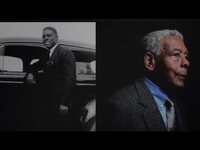 Interview: Brown, William Neal, 2005 Dr. Brown was born in Warrenton, Georgia, in 1919. He grew up in Aliquippa, Pennsylvania as the oldest of six siblings. He attended Hampton Institute and graduated in 1941 with a English and History major. A volunteer for the Army Air Force, he attended Officer Candidate School in Miami Beach and then volunteered to be trained at Tuskegee Air Field. He served as a special services officer with the 618th Bomb Squadron in the American Theater of Operations. After the war he attended Columbia University with the help of the GI Bill and he graduated in 1950. He was hired as the first African-American Professor at Rutgers University in 1956. He worked at the School of Social Work for 33 years. There were many highlights of Dr. Brown’s Academic career, but one that especially stands out was his debate at Rutgers with Malcolm X at the Rutgers School of Pharmacy.
Interview: Brown, William Neal, 2005 Dr. Brown was born in Warrenton, Georgia, in 1919. He grew up in Aliquippa, Pennsylvania as the oldest of six siblings. He attended Hampton Institute and graduated in 1941 with a English and History major. A volunteer for the Army Air Force, he attended Officer Candidate School in Miami Beach and then volunteered to be trained at Tuskegee Air Field. He served as a special services officer with the 618th Bomb Squadron in the American Theater of Operations. After the war he attended Columbia University with the help of the GI Bill and he graduated in 1950. He was hired as the first African-American Professor at Rutgers University in 1956. He worked at the School of Social Work for 33 years. There were many highlights of Dr. Brown’s Academic career, but one that especially stands out was his debate at Rutgers with Malcolm X at the Rutgers School of Pharmacy. -
Interview: Browne, Joseph, 1991Joseph Browne founded the Black Organization of Students (BOS) together with Richard Roper. Browne grew up in Newark and attended white Catholic schools prior to coming to the university. He had left Rutgers for a time to join VISTA (Volunteers in Service to America) and participated in the Newark City Council election of 1968.
-
 Interview: Busia, Abena, 2015 Founding member of the Center for Women's Global Leadership and Center for African Studies, Abena Busia is an Associate Professor in the Department of Women's and Gender Studies and the Department of English at Rutgers. She is also co-director and co-editor of the groundbreaking Women Writing Africa Project, a multi-volume anthology published by the Feminist Press at CUNY. Busia articulates the significance of communities and leadership at Rutgers and describes negotiating a space within Rutgers to consider women's experiences, blackness, and African womanness. She emphasizes the value of a single-sex education and describes Douglass as a place for nurturing women's leadership.
Interview: Busia, Abena, 2015 Founding member of the Center for Women's Global Leadership and Center for African Studies, Abena Busia is an Associate Professor in the Department of Women's and Gender Studies and the Department of English at Rutgers. She is also co-director and co-editor of the groundbreaking Women Writing Africa Project, a multi-volume anthology published by the Feminist Press at CUNY. Busia articulates the significance of communities and leadership at Rutgers and describes negotiating a space within Rutgers to consider women's experiences, blackness, and African womanness. She emphasizes the value of a single-sex education and describes Douglass as a place for nurturing women's leadership. -
 Interview: Byrd, Arnold Norris, 2022 This interview was recorded as part of the Black Camden Oral History Project. Arnold Norris Byrd was born to Laura Bertha and Ralph Herman Byrd in Camden, New Jersey, in 1939. Byrd attended Rutgers University in New Brunswick from 1957 to 1961 and earned his Bachelor’s in Psychology while participating in athletics. At Rutgers he was part of the Black Student Union and the ROTC. In 1976, he graduated from Antioch College with a Master’s in Community Education. During the interview, Byrd discusses his family’s decision to move from Virginia as part of the Great Migration and his positive experiences growing up in Camden. He touches on the issue of school integration in the city. The interview includes information about his experiences in the ROTC and his military service in Korea. He ended his service as a captain in the reserves. He describes race relations in the military. He talks about his life-long participation in athletics, especially during his time at Rutgers University and while serving in the military. Byrd returned to Camden and spent most of his life residing in his hometown. The interview highlights his civil service and economic development work in the city, including work for the Welfare Board and his decades as the Executive Director of the Camden County Council on Economic Opportunity (OEO). He describes his relationship with Camden leader Poppy Sharp and the Black People’s Unity Movement. He also discusses his perspectives on Martin Luther King Jr. and Malcom X.
Interview: Byrd, Arnold Norris, 2022 This interview was recorded as part of the Black Camden Oral History Project. Arnold Norris Byrd was born to Laura Bertha and Ralph Herman Byrd in Camden, New Jersey, in 1939. Byrd attended Rutgers University in New Brunswick from 1957 to 1961 and earned his Bachelor’s in Psychology while participating in athletics. At Rutgers he was part of the Black Student Union and the ROTC. In 1976, he graduated from Antioch College with a Master’s in Community Education. During the interview, Byrd discusses his family’s decision to move from Virginia as part of the Great Migration and his positive experiences growing up in Camden. He touches on the issue of school integration in the city. The interview includes information about his experiences in the ROTC and his military service in Korea. He ended his service as a captain in the reserves. He describes race relations in the military. He talks about his life-long participation in athletics, especially during his time at Rutgers University and while serving in the military. Byrd returned to Camden and spent most of his life residing in his hometown. The interview highlights his civil service and economic development work in the city, including work for the Welfare Board and his decades as the Executive Director of the Camden County Council on Economic Opportunity (OEO). He describes his relationship with Camden leader Poppy Sharp and the Black People’s Unity Movement. He also discusses his perspectives on Martin Luther King Jr. and Malcom X. -
 Interview: Carmichael, Rosalind, 2015 Dr. Rosalind Carmichael was born in Fayetteville, North Carolina. She attended Douglass College and graduated in 1972 with a degree in English. She earned her Masters in Education from the Rutgers Graduate School of Education (1977), and her PhD in African American Studies from Temple University (2000). Dr. Carmichael worked as an English teacher at Malcolm X Shabazz High School for over thirty years.
Interview: Carmichael, Rosalind, 2015 Dr. Rosalind Carmichael was born in Fayetteville, North Carolina. She attended Douglass College and graduated in 1972 with a degree in English. She earned her Masters in Education from the Rutgers Graduate School of Education (1977), and her PhD in African American Studies from Temple University (2000). Dr. Carmichael worked as an English teacher at Malcolm X Shabazz High School for over thirty years. -
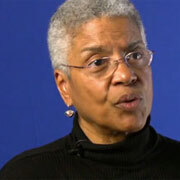 Interview: Clarke, Cheryl, 2012 Cheryl Clarke is a black lesbian feminist whose poetry, editorial work, and career at Rutgers have had a significant impact on black, lesbian, and women’s communities. She is the author of four collections of poetry, often centered around themes of black women’s issues and lesbian issues. She served as an editor of the lesbian publication Conditions for nine years and began working at Rutgers University in 1970. At Rutgers, she served as the founding Director of Diverse Community Affairs and Lesbian/Gay Concerns, which became the Office of Social Justice Education and LGBT Communities in 2004. She was the Dean of Students of Livingston Campus between 2009-2013 and retired from Rutgers in 2013 after 41 years of service. In this interview, Clarke discusses her upbringing in Washington, D.C. during the Civil Rights Movement, her passion for writing, and the role of feminism. Clarke proposes the idea that we, as a society, must be in the “project of transformation” to “create a new humanity” as we reconcile gender and race issues. --- See also an additional interview with Cheryl Clarke, recorded in 2018 by the Rutgers Oral History Archives.
Interview: Clarke, Cheryl, 2012 Cheryl Clarke is a black lesbian feminist whose poetry, editorial work, and career at Rutgers have had a significant impact on black, lesbian, and women’s communities. She is the author of four collections of poetry, often centered around themes of black women’s issues and lesbian issues. She served as an editor of the lesbian publication Conditions for nine years and began working at Rutgers University in 1970. At Rutgers, she served as the founding Director of Diverse Community Affairs and Lesbian/Gay Concerns, which became the Office of Social Justice Education and LGBT Communities in 2004. She was the Dean of Students of Livingston Campus between 2009-2013 and retired from Rutgers in 2013 after 41 years of service. In this interview, Clarke discusses her upbringing in Washington, D.C. during the Civil Rights Movement, her passion for writing, and the role of feminism. Clarke proposes the idea that we, as a society, must be in the “project of transformation” to “create a new humanity” as we reconcile gender and race issues. --- See also an additional interview with Cheryl Clarke, recorded in 2018 by the Rutgers Oral History Archives. -
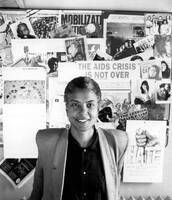 Interview: Clarke, Cheryl, 2018 Cheryl Clarke was born on May 16, 1947 in Washington, D.C. Her father served in the U.S. Army in the Red Ball Express in France after the Allied invasion in June 1944. Growing up in Northwest Washington, D.C., Cheryl attended parochial schools, including Immaculate Conception Academy for high school. From 1965 to 1969, Cheryl attended Howard University and majored in English. During college, she worked part time at the Washington Post and at a Peace Corps office. In 1969, Cheryl came to Rutgers-New Brunswick as a graduate student in English. She earned her M.A. in English in 1974. Cheryl taught courses in the Urban University Program and discusses educational opportunity programs in the interview. From 1972 to 1974, she taught courses in the English Department at Rutgers. A life-long activist, Cheryl discusses her many experiences participating in social movements, including the anti-war and Black Power movements at Howard University, anti-apartheid activism at Rutgers, LGBT activism, feminism and lesbian-feminism, and activism surrounding the defense of Assata Shakur. From 1974 to 1978, Cheryl worked in Middlesex County in the Comprehensive Employment and Training Program. In 1978, she returned to Rutgers to study social work, obtaining her M.S.W. in 1980. In 1980, Cheryl began working in Student Affairs at Rutgers. In 1992, she served as the founding director of the Office of Diverse Community Affairs and Lesbian/Gay Concerns (now called the Center for Social Justice Education and LGBT Communities). From 2009 to 2013, Cheryl served as the Dean of Students for Livingston Campus. In 2000, she earned her Ph.D. in English. At Rutgers, Cheryl coordinated the university-wide Committee to Advance Our Common Purposes and the New Brunswick-wide Bias Prevention Education Committee, in addition to establishing the university-wide network of "Liaisons" and teaching numerous courses. Cheryl is the author of Narratives: Poems in the Tradition of Black Women (1982); Living as a Lesbian (1986); Humid Pitch (1989); Experimental Love (1993); After Mecca: Women Poets and the Black Arts Movement (2005); and The Days of Good Looks: Prose and Poetry, 1980-2005 (2006). From 1981 to 1990, she served as a member of the editorial collective of the feminist literary journal Conditions. In 2013, Cheryl retired after forty-one years at Rutgers. Cheryl and her partner Barbara Balliet co-own Blenheim Hill Books in Hobart, New York and organize the annual Hobart Festival of Women Writers.
Interview: Clarke, Cheryl, 2018 Cheryl Clarke was born on May 16, 1947 in Washington, D.C. Her father served in the U.S. Army in the Red Ball Express in France after the Allied invasion in June 1944. Growing up in Northwest Washington, D.C., Cheryl attended parochial schools, including Immaculate Conception Academy for high school. From 1965 to 1969, Cheryl attended Howard University and majored in English. During college, she worked part time at the Washington Post and at a Peace Corps office. In 1969, Cheryl came to Rutgers-New Brunswick as a graduate student in English. She earned her M.A. in English in 1974. Cheryl taught courses in the Urban University Program and discusses educational opportunity programs in the interview. From 1972 to 1974, she taught courses in the English Department at Rutgers. A life-long activist, Cheryl discusses her many experiences participating in social movements, including the anti-war and Black Power movements at Howard University, anti-apartheid activism at Rutgers, LGBT activism, feminism and lesbian-feminism, and activism surrounding the defense of Assata Shakur. From 1974 to 1978, Cheryl worked in Middlesex County in the Comprehensive Employment and Training Program. In 1978, she returned to Rutgers to study social work, obtaining her M.S.W. in 1980. In 1980, Cheryl began working in Student Affairs at Rutgers. In 1992, she served as the founding director of the Office of Diverse Community Affairs and Lesbian/Gay Concerns (now called the Center for Social Justice Education and LGBT Communities). From 2009 to 2013, Cheryl served as the Dean of Students for Livingston Campus. In 2000, she earned her Ph.D. in English. At Rutgers, Cheryl coordinated the university-wide Committee to Advance Our Common Purposes and the New Brunswick-wide Bias Prevention Education Committee, in addition to establishing the university-wide network of "Liaisons" and teaching numerous courses. Cheryl is the author of Narratives: Poems in the Tradition of Black Women (1982); Living as a Lesbian (1986); Humid Pitch (1989); Experimental Love (1993); After Mecca: Women Poets and the Black Arts Movement (2005); and The Days of Good Looks: Prose and Poetry, 1980-2005 (2006). From 1981 to 1990, she served as a member of the editorial collective of the feminist literary journal Conditions. In 2013, Cheryl retired after forty-one years at Rutgers. Cheryl and her partner Barbara Balliet co-own Blenheim Hill Books in Hobart, New York and organize the annual Hobart Festival of Women Writers. -
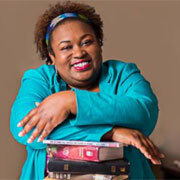 Interview: Cooper, Brittney, 2015 Brittney Cooper is Associate Professor of Women’s and Gender Studies and Africana Studies at Rutgers University. She is a Black feminist theorist who specializes in the study of Black women’s intellectual history, Hip Hop generation feminism, and race and gender representation in popular culture. Dr. Cooper is also a sought-after public speaker and commentator, her work and words have appeared in the New York Times, the Washington Post, TV Guide, the Los Angeles Times, MSNBC’s Melissa Harris-Perry Show, All In With Chris Hayes, Disrupt with Karen Finney, and Third Rail on Al-Jazeera America, among many others. She is also a co-founder of the Crunk Feminist Collective, a popular feminist blog. Dr. Brittney Cooper is a proud alumna of Howard University (class of 2002) and a proud native of North Louisiana. In this interview, Dr. Cooper speaks about her day-to-day work as an Assistant Professor in the Women’s and Gender Studies and Africana Studies departments. Including her work as a “hip hop feminist” and the book she had just finished at the time "Race Women: Gender and the Making of a Black Public Intellectual Tradition"(published as: "Beyond Respectability: The Intellectual Thought of Race Women"). She continues with speaking about her experiences as a Black Woman in her field and the challenges she faces, the different types of activism she partakes in, and ends the interview speaking about her college experience and the lessons she has learned.
Interview: Cooper, Brittney, 2015 Brittney Cooper is Associate Professor of Women’s and Gender Studies and Africana Studies at Rutgers University. She is a Black feminist theorist who specializes in the study of Black women’s intellectual history, Hip Hop generation feminism, and race and gender representation in popular culture. Dr. Cooper is also a sought-after public speaker and commentator, her work and words have appeared in the New York Times, the Washington Post, TV Guide, the Los Angeles Times, MSNBC’s Melissa Harris-Perry Show, All In With Chris Hayes, Disrupt with Karen Finney, and Third Rail on Al-Jazeera America, among many others. She is also a co-founder of the Crunk Feminist Collective, a popular feminist blog. Dr. Brittney Cooper is a proud alumna of Howard University (class of 2002) and a proud native of North Louisiana. In this interview, Dr. Cooper speaks about her day-to-day work as an Assistant Professor in the Women’s and Gender Studies and Africana Studies departments. Including her work as a “hip hop feminist” and the book she had just finished at the time "Race Women: Gender and the Making of a Black Public Intellectual Tradition"(published as: "Beyond Respectability: The Intellectual Thought of Race Women"). She continues with speaking about her experiences as a Black Woman in her field and the challenges she faces, the different types of activism she partakes in, and ends the interview speaking about her college experience and the lessons she has learned. -
Interview: Davis, Betty, 2016Betty Davis was born on April 17, 1944 in Washington, D.C. She grew up in Jersey City and Orange, graduating from Orange High School in 1962. From 1962 to 1966, Betty Davis attended Douglass College and majored in political science. She was active in the local NAACP group. In the interview, she describes her years at Douglass, including her experiences of being an African American student at Rutgers University. After graduating in 1966, Betty Davis joined the Peace Corps and served in Nigeria. She settled in Toronto, Canada and has spent her career working in computer programming.
-
 Interview: Epps, C. Roy, 2012 C. Roy Epps was interviewed as part of the City of New Brunswick Redevelopment Oral Histories project at the Edward J. Bloustein School of Planning and Public Policy circa 2012 (the exact date of the interview is unknown). This research project spanned from 2009 to 2016 and resulted in the publication of the book New Brunswick, New Jersey: The Decline and Revitalization of Urban America (Rutgers University Press, 2016). The video of Mr. Epps's interview and the accompanying transcript are available in digital format. Roy Epps grew up in the South Bronx and attended Wilberforce University in Ohio. After serving in the Army, he and his wife settled in New Brunswick, and he worked at Colgate-Palmolive in Piscataway. Following the riots in the summer of 1967, Epps changed his career focus and began as social worker at the Urban League. In 1970, Epps became the president and chief executive officer of the Urban League. During the early phases of the redevelopment process, Epps and the Urban League worked with the Housing Authority and city government to represent the interests of the community. Epps discusses his relationship with Richard Sellars of Johnson & Johnson and how they strategized about development models. They settled on the Hartford model with modifications, such as the inclusion of minorities and women on the board of the New Brunswick Development Corporation (Devco) and that Devco and New Brunswick Tomorrow (NBT) work together. In his role as chairman of the Housing Committee at Devco, Epps explores his involvement with residential projects and the development conflict that existed between the downtown area and neighborhoods. Epps says that Rutgers remained isolated, although certain figures were active in the community. Other topics addressed include the involvement of the Middlesex County government, Hiram Market, gentrification, the Cultural Center, financing various projects and NBT’s annual survey.
Interview: Epps, C. Roy, 2012 C. Roy Epps was interviewed as part of the City of New Brunswick Redevelopment Oral Histories project at the Edward J. Bloustein School of Planning and Public Policy circa 2012 (the exact date of the interview is unknown). This research project spanned from 2009 to 2016 and resulted in the publication of the book New Brunswick, New Jersey: The Decline and Revitalization of Urban America (Rutgers University Press, 2016). The video of Mr. Epps's interview and the accompanying transcript are available in digital format. Roy Epps grew up in the South Bronx and attended Wilberforce University in Ohio. After serving in the Army, he and his wife settled in New Brunswick, and he worked at Colgate-Palmolive in Piscataway. Following the riots in the summer of 1967, Epps changed his career focus and began as social worker at the Urban League. In 1970, Epps became the president and chief executive officer of the Urban League. During the early phases of the redevelopment process, Epps and the Urban League worked with the Housing Authority and city government to represent the interests of the community. Epps discusses his relationship with Richard Sellars of Johnson & Johnson and how they strategized about development models. They settled on the Hartford model with modifications, such as the inclusion of minorities and women on the board of the New Brunswick Development Corporation (Devco) and that Devco and New Brunswick Tomorrow (NBT) work together. In his role as chairman of the Housing Committee at Devco, Epps explores his involvement with residential projects and the development conflict that existed between the downtown area and neighborhoods. Epps says that Rutgers remained isolated, although certain figures were active in the community. Other topics addressed include the involvement of the Middlesex County government, Hiram Market, gentrification, the Cultural Center, financing various projects and NBT’s annual survey. -
 Interview: Fisher, Michael M., 2022 This interview was conducted by Professor Deborah Gray White for the Scarlet and Black research project. Michael M. Fisher was a star football player at Rutgers University–New Brunswick from 1974 to 1978. He is known as Mike Fisher in the annals of Rutgers athletics. He was born in New Brunswick and grew up in nearby Edison. In his interview he recalls his experience growing up in Middlesex County, New Jersey, and participating in youth sports through the Pop Warner Little Scholars program. He discusses college sports at length, including recruitment, training, travel, rivalries, and the use of college athletes' image and likeness for promotional purposes in the 1970s. During his time at Rutgers, he was part of the undefeated 1976 Scarlet Knights team and played the first college football game at the Giants Stadium at the Meadowlands. He also shares memories of the social life on campus and the African American fraternities and sororities in the 1970s.
Interview: Fisher, Michael M., 2022 This interview was conducted by Professor Deborah Gray White for the Scarlet and Black research project. Michael M. Fisher was a star football player at Rutgers University–New Brunswick from 1974 to 1978. He is known as Mike Fisher in the annals of Rutgers athletics. He was born in New Brunswick and grew up in nearby Edison. In his interview he recalls his experience growing up in Middlesex County, New Jersey, and participating in youth sports through the Pop Warner Little Scholars program. He discusses college sports at length, including recruitment, training, travel, rivalries, and the use of college athletes' image and likeness for promotional purposes in the 1970s. During his time at Rutgers, he was part of the undefeated 1976 Scarlet Knights team and played the first college football game at the Giants Stadium at the Meadowlands. He also shares memories of the social life on campus and the African American fraternities and sororities in the 1970s. -
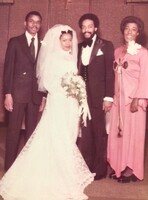 Interview: Graham, Patricia, 2015 Patricia Graham was born in Saluda, South Carolina, on March 9, 1949. She grew up in Philadelphia and then moved to New Jersey during high school. Dr. Graham graduated from West Side High School in Newark in 1966. She attended Essex County Community College and then Rutgers-Newark, before transferring to Livingston College at Rutgers-New Brunswick. During college, Dr. Graham participated in the Volunteers in Service to America (VISTA) program. Majoring in urban studies and secondary education, Dr. Graham graduated from Livingston College in 1972. She went on to earn her Master's degree in education at Antioch College and Ed.D. at the University of Massachusetts, Amherst. From 1977 to 2013, Dr. Graham served in various positions at East Stroudsburg University, where she is now a professor emeritus.
Interview: Graham, Patricia, 2015 Patricia Graham was born in Saluda, South Carolina, on March 9, 1949. She grew up in Philadelphia and then moved to New Jersey during high school. Dr. Graham graduated from West Side High School in Newark in 1966. She attended Essex County Community College and then Rutgers-Newark, before transferring to Livingston College at Rutgers-New Brunswick. During college, Dr. Graham participated in the Volunteers in Service to America (VISTA) program. Majoring in urban studies and secondary education, Dr. Graham graduated from Livingston College in 1972. She went on to earn her Master's degree in education at Antioch College and Ed.D. at the University of Massachusetts, Amherst. From 1977 to 2013, Dr. Graham served in various positions at East Stroudsburg University, where she is now a professor emeritus. -
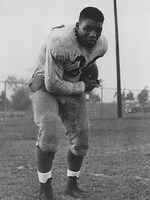 Interview: Grimsley, Harvey, 2019 Harvey Grimsley was born in Haleburg, Alabama, in 1922. His family fled the racial oppression and violence of the Jim Crow-era South and moved to New Jersey during his childhood. Grimsley attended schools in Bloomfield and then Orange, where his relative Monte Irvin also grew up. Irvin went on to play professional baseball and became a member of the Baseball Hall of Fame. Grimsley graduated from Orange High School in 1942. During World War II, Grimsley was drafted. He served overseas in Europe in the segregated U.S. Army in an all-Black transportation unit. He and his unit partook in D-Day, the Allied invasion of German-occupied Normandy on June 6, 1944, and landed on Utah Beach. In 1945-'46, Grimsley attended Biarritz American University in Europe and played on the university's integrated basketball team. After being discharged from the Army, Grimsley was recruited to play football at Rutgers, which he attended on the GI Bill. Between '46 and '49, Grimsley distinguished himself as the Scarlet Knight's leading scorer, despite never starting a game under coach Harvey Harman. After graduating in the Rutgers College Class of 1950, Grimsley spent his career working as a coach, including being a high school coach in Newark and Piscataway and working as a recruiter for Governors State University in Chicago. He was inducted into the Rutgers Athletic Hall of Fame in 1993.
Interview: Grimsley, Harvey, 2019 Harvey Grimsley was born in Haleburg, Alabama, in 1922. His family fled the racial oppression and violence of the Jim Crow-era South and moved to New Jersey during his childhood. Grimsley attended schools in Bloomfield and then Orange, where his relative Monte Irvin also grew up. Irvin went on to play professional baseball and became a member of the Baseball Hall of Fame. Grimsley graduated from Orange High School in 1942. During World War II, Grimsley was drafted. He served overseas in Europe in the segregated U.S. Army in an all-Black transportation unit. He and his unit partook in D-Day, the Allied invasion of German-occupied Normandy on June 6, 1944, and landed on Utah Beach. In 1945-'46, Grimsley attended Biarritz American University in Europe and played on the university's integrated basketball team. After being discharged from the Army, Grimsley was recruited to play football at Rutgers, which he attended on the GI Bill. Between '46 and '49, Grimsley distinguished himself as the Scarlet Knight's leading scorer, despite never starting a game under coach Harvey Harman. After graduating in the Rutgers College Class of 1950, Grimsley spent his career working as a coach, including being a high school coach in Newark and Piscataway and working as a recruiter for Governors State University in Chicago. He was inducted into the Rutgers Athletic Hall of Fame in 1993. -
 Interview: Harris, David, 2012 David Harris was interviewed as part of the City of New Brunswick Redevelopment Oral Histories project at the Edward J. Bloustein School of Planning and Public Policy circa 2012 (the exact date of the interview is unknown). This research project spanned from 2009 to 2016 and resulted in the publication of the book New Brunswick, New Jersey: The Decline and Revitalization of Urban America (Rutgers University Press, 2016). The video of Mr. Harris's interview and the accompanying transcript are available in digital format. In the early 1960s, David Harris lived in South River, near New Brunswick, and studied part time at Rutgers. Harris explains that New Brunswick, known as “Hub City,” used to be the center of African American culture in the region. In 1965, he began working in New Brunswick for the Middlesex County Economic Opportunities Corporation. Harris explores conflicts between the needs of the community and redevelopment agencies led by Johnson & Johnson, and in this context, discusses the demolition of the Memorial Homes housing project. Having served on the board of the New Brunswick Development Corporation (Devco) for a short time, Harris critiques the lack of genuine input from the public. He asserts that Devco wanted to diminish the African American presence in the business district. Consequently, the welfare office, YMCA and YWCA were removed from downtown. Harris reveals the motivations that led to building the current New Brunswick high school on the outskirts of town. He touches upon the Hyatt Hotel, Hiram Market, leaders in redevelopment such as John Lynch and John Heldrich and the roles of Rutgers, the hospitals and arts venues in urban renewal. Finally, Harris alludes to “unfinished business” and what still needs to be accomplished in the community.
Interview: Harris, David, 2012 David Harris was interviewed as part of the City of New Brunswick Redevelopment Oral Histories project at the Edward J. Bloustein School of Planning and Public Policy circa 2012 (the exact date of the interview is unknown). This research project spanned from 2009 to 2016 and resulted in the publication of the book New Brunswick, New Jersey: The Decline and Revitalization of Urban America (Rutgers University Press, 2016). The video of Mr. Harris's interview and the accompanying transcript are available in digital format. In the early 1960s, David Harris lived in South River, near New Brunswick, and studied part time at Rutgers. Harris explains that New Brunswick, known as “Hub City,” used to be the center of African American culture in the region. In 1965, he began working in New Brunswick for the Middlesex County Economic Opportunities Corporation. Harris explores conflicts between the needs of the community and redevelopment agencies led by Johnson & Johnson, and in this context, discusses the demolition of the Memorial Homes housing project. Having served on the board of the New Brunswick Development Corporation (Devco) for a short time, Harris critiques the lack of genuine input from the public. He asserts that Devco wanted to diminish the African American presence in the business district. Consequently, the welfare office, YMCA and YWCA were removed from downtown. Harris reveals the motivations that led to building the current New Brunswick high school on the outskirts of town. He touches upon the Hyatt Hotel, Hiram Market, leaders in redevelopment such as John Lynch and John Heldrich and the roles of Rutgers, the hospitals and arts venues in urban renewal. Finally, Harris alludes to “unfinished business” and what still needs to be accomplished in the community. -
Interview: Harris, Donald, 2013Donald Harris was born in New York, New York in 1940. He attended Rutgers College and graduated in 1963 with majors in English and Physical Education. At Rutgers, Harris was a member of the Air Force ROTC and also played football and lacrosse. He worked as a Civil Rights activist during his student days at Rutgers and, later, as a fieldworker for the Student Nonviolent Coordinating Committee (SNCC) in Southwest Georgia in the early 1960s. In August 1963, he was arrested in Americus, Georgia, while trying to register African-American voters. Harris and two others were charged with insurrection, a capital offense in Georgia. The case stirred support on the Rutgers campus and across New Jersey in the Fall of 1963. Harris was released in November after a federal court declared the law under which he was charged to be unconstitutional. He went on to pursue graduate work at the City University of New York, Harvard Law School, and Columbia University. He worked for Philip Morris International Management and retired as the Vice President of Public Affairs and Communications.
-
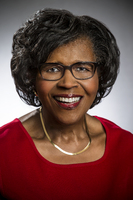 Interview: Harris, M. Wilma, 2015 M. Wilma Harris was born in 1944 in Paulsboro, New Jersey. She attended Douglass College and graduated with a history degree in the Class of 1966. She went on to earn her master's degree in Governmental Administration from the University of Pennsylvania. Harris worked at Douglass College as Counselor-in-Residence, Assistant Dean of Students and Associate Dean of Students. In 1977, Harris began working at Prudential and spent the rest of her career there, eventually becoming Vice President of Human Resources. Harris has an honorary doctorate from St. Peter's College.
Interview: Harris, M. Wilma, 2015 M. Wilma Harris was born in 1944 in Paulsboro, New Jersey. She attended Douglass College and graduated with a history degree in the Class of 1966. She went on to earn her master's degree in Governmental Administration from the University of Pennsylvania. Harris worked at Douglass College as Counselor-in-Residence, Assistant Dean of Students and Associate Dean of Students. In 1977, Harris began working at Prudential and spent the rest of her career there, eventually becoming Vice President of Human Resources. Harris has an honorary doctorate from St. Peter's College. -
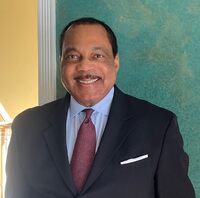 Interview: Hubbard, Bruce, 2016 Bruce Hubbard was born on February 7, 1948, in Chattanooga, Tennessee. He graduated from Rutgers College in 1969 and from Harvard Law School in 1972. Mr. Hubbard was a writer and photographer for the Targum, a student representative to the Board of Governors, and a member of the Chi Psi fraternity. Today, Mr. Hubbard is the Principal of Bruce A. Hubbard, P.C., an independent law firm located in New York City.
Interview: Hubbard, Bruce, 2016 Bruce Hubbard was born on February 7, 1948, in Chattanooga, Tennessee. He graduated from Rutgers College in 1969 and from Harvard Law School in 1972. Mr. Hubbard was a writer and photographer for the Targum, a student representative to the Board of Governors, and a member of the Chi Psi fraternity. Today, Mr. Hubbard is the Principal of Bruce A. Hubbard, P.C., an independent law firm located in New York City. -
Interview: Hyndman, Arnold, 2016Born in Los Angeles, California, Dr. Hyndman was interested in science from a young age and was encouraged by his teachers to attend programs and assist with research, prompting a career in science and education. During his time in high school, he was able to participate in summer research programs with institutions such as the University of Southern California in their marine animal laboratory. Dr. Hyndman participated in a school walkout after the assassination of Dr. Martin Luther King, Jr. After graduating high school in 1970, Dr. Hyndman went on to attend Princeton University, majoring in Biology. Building on the work of his bachelor’s degree, Dr. Hyndman returned to California to attend graduate school at the University of California, Los Angeles from 1974 to 1978 and he earned his Ph.D. in Philosophy and Neuroscience. During his graduate work, Dr. Hyndman was actively involved in recruiting more students of color to the biology department. He also made quick use of the teaching credentials he obtained from Princeton, working, over the summers, with an Upward Bound program, bringing inner city young people to college and university campuses and preparing them for college life. Dr. Hyndman took his first post-doctoral assignment at Ohio State University in the medical school working on research, before finding himself presented with offers for positions at both the University of California (UCSD), San Diego and at Livingston College. Dr. Hyndman worked out a compromise wherein he asked Rutgers to hold the position for a year, while he went to UCSD to complete a second post-doctoral program. While working at UCSD, Dr. Hyndman and his collaborators developed a cell culture technique and were among the early describers of the natural cell division and replication of post-mitotic cells. Dr. Hyndman’s work helped to illustrate that there are cells in our brains that continue to divide. In 1981, Dr. Hyndman became assistant professor in the Department of Biological Science at Rutgers University, during which time the faculty reorganized into the Faculty of Arts and Sciences (FAS). He served as the founding director of what was originally called the Minority Advancement Program and held this position until becoming associate provost in 1990. Dr. Hyndman established mechanisms to prime the coordination and funding for campus-based retention programs and provided administrative guidance for programs such as the establishment of the university’s Latino Cultural Center and the Asian Cultural Center. Dr. Hyndman then served as the Dean of Livingston College from 1993 until 2007. Since 2001, he has been the director of the Organizational Leadership Program. From 2001 to 2008, he also served as the director of the Criminal Justice Program. Dr. Hyndman is a professor in the Department of Cell Biology and Neuroscience. Dr. Hyndman served on the New Jersey State Board of Education, in addition to consulting for organizations such as SLS and Janssen Pharmaceuticals. He has obtained numerous credentials, including being an ordained Christian Minister, a New Jersey Teaching Credential, and membership in such organizations as the International Leadership Society and the Center for Bioethics and Human Dignity. He also serves as Chair of the Elder Board at Abundant Life Community Church, a position he has held since 2012. Dr. Hyndman is Secretary and Treasurer on the Executive Board of the Warren County National Alliance on Mental Illness.
-
Interview: Jackson, Linda, 2015Linda Jackson was born in New York, New York in 1953. She attended Douglass College and graduated in 1974 with degrees in Theater Arts and English. She has had a long career in theather and opera.
-
Interview: Jackson, Michael, 2015Michael T. Jackson was born in Washington, DC in 1949. He studied African Studies at Rutgers University and graduated in 1971. Jackson also earned his Masters of Divinity at the University of the South's School of Theology. He worked in social service and administration and retired as the Executive Director of the St. Vincent's Episcopal House in Galveston, Texas in 2014.
-
 Interview: Khan, Ricardo, 2012 Ricardo Khan was interviewed as part of the City of New Brunswick Redevelopment Oral Histories project at the Edward J. Bloustein School of Planning and Public Policy circa 2012 (the exact date of the interview is unknown). This research project spanned from 2009 to 2016 and resulted in the publication of the book New Brunswick, New Jersey: The Decline and Revitalization of Urban America (Rutgers University Press, 2016). The video of Mr. Khan's interview and the accompanying transcript are available in digital format. As co-founder of the Crossroads Theater in New Brunswick, Ricardo Khan’s interview offers insight into the theater scene during redevelopment. After finishing his MFA at Rutgers, Khan became involved in the Comprehensive Employment and Training Act program and then a similar program that allowed him and his partner Lee Richardson to found what eventually became called Crossroads. The theater was originally in Hiram Market, explains Khan, and it was an integral part of the diverse community there. Khan discusses the evolution of Crossroads and how key figures promoted it, culminating in the theater moving to its current location on Livingston Avenue. He discusses the formation of the Cultural Center and the major people involved in that effort. In 1999, Crossroads won a Tony Award for best regional theater. He discusses the positive impact that redevelopment had on the arts but points out the effects on neighborhoods that were razed.
Interview: Khan, Ricardo, 2012 Ricardo Khan was interviewed as part of the City of New Brunswick Redevelopment Oral Histories project at the Edward J. Bloustein School of Planning and Public Policy circa 2012 (the exact date of the interview is unknown). This research project spanned from 2009 to 2016 and resulted in the publication of the book New Brunswick, New Jersey: The Decline and Revitalization of Urban America (Rutgers University Press, 2016). The video of Mr. Khan's interview and the accompanying transcript are available in digital format. As co-founder of the Crossroads Theater in New Brunswick, Ricardo Khan’s interview offers insight into the theater scene during redevelopment. After finishing his MFA at Rutgers, Khan became involved in the Comprehensive Employment and Training Act program and then a similar program that allowed him and his partner Lee Richardson to found what eventually became called Crossroads. The theater was originally in Hiram Market, explains Khan, and it was an integral part of the diverse community there. Khan discusses the evolution of Crossroads and how key figures promoted it, culminating in the theater moving to its current location on Livingston Avenue. He discusses the formation of the Cultural Center and the major people involved in that effort. In 1999, Crossroads won a Tony Award for best regional theater. He discusses the positive impact that redevelopment had on the arts but points out the effects on neighborhoods that were razed. -
Interview: Mitchell, Bryant, 2015Part 1 - Bryant Mitchell was born on July 13, 1947, in Hampton, Virginia. An art history major, he graduated from Rutgers College in 1969. While at Rutgers, he was named most valuable player for the 1968 football season. He is a 1992 Rutgers Football Hall of Fame inductee. During Mr. Mitchell's first interview, he recalls growing up in Virginia, an early exposure to Civil Rights activism by way of his father, Henry Bryant Mitchell, and his time at Rutgers. He joined the 25th Infantry Division in 1969. Part 2 - Mr. Mitchell served in the 25th Infantry Division from September 1969 to September 1971 as a combat MP. He was stationed at Cu Chi before being assigned to Dau Tieng. After leaving the military, Mr. Mitchell entered the University of Virginia Law School and graduated in 1975. Currently, Mr. Mitchell works in real estate, owning his own brokerage in the Washington, D.C. metropolitan area.
-
 Interview: Morrison Rodriguez, Barbara, 2015 Dr. Barbara Morrison-Rodriguez was born in Washington, DC in 1947. She graduated from McKinley Technical High School in Washington, DC, and went on to Douglass College. Barbara graduated with a degree in Sociology. In 1979, she earned a Master's Degree in Social Welfare Research from Columbia University's School of Social Welfare and later, a PhD in Social Welfare Research and Evaluation.
Interview: Morrison Rodriguez, Barbara, 2015 Dr. Barbara Morrison-Rodriguez was born in Washington, DC in 1947. She graduated from McKinley Technical High School in Washington, DC, and went on to Douglass College. Barbara graduated with a degree in Sociology. In 1979, she earned a Master's Degree in Social Welfare Research from Columbia University's School of Social Welfare and later, a PhD in Social Welfare Research and Evaluation. -
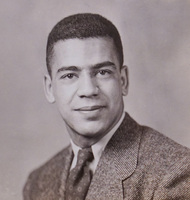 Interview: Moss, Simeon, 1997 Simeon Moss graduated from Rutgers College in 1941. Mr. Moss served as an infantry officer in the 92nd Infantry Division during World War II. He had a long career in educational leadership and administration.
Interview: Moss, Simeon, 1997 Simeon Moss graduated from Rutgers College in 1941. Mr. Moss served as an infantry officer in the 92nd Infantry Division during World War II. He had a long career in educational leadership and administration. -
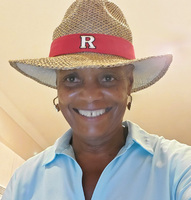 Interview: Petway, Sandra M., 2022 This interview was conducted by Professor Deborah Gray White for the Scarlet and Black research project. Sandra Petway, known to her friends and fellow athletes as Sandee, started the women’s track and field program at Rutgers–New Brunswick in 1974, a year after joining the university as a physical education instructor. She was the first Black head coach at Rutgers and led the track team until 1980. In 2022, she was inducted into the Rutgers Athletics Hall of Fame in recognition of her contribution to women’s sports and the many successes that her track team achieved during her tenure. Petway was born in 1950 in Plainfield, NJ, and grew up in Vineland in South Jersey. She attended Trenton State College (now The College of New Jersey), where she developed her leadership experience by creating a women’s varsity track team as an undergraduate student. In her interview, she discusses her memories of Rutgers athletics in the 1970s and the changes that Title IX brought to the university. She also discusses her family history and the impact that her mother, teacher and principal Pauline Petway, had on the community in Vineland.
Interview: Petway, Sandra M., 2022 This interview was conducted by Professor Deborah Gray White for the Scarlet and Black research project. Sandra Petway, known to her friends and fellow athletes as Sandee, started the women’s track and field program at Rutgers–New Brunswick in 1974, a year after joining the university as a physical education instructor. She was the first Black head coach at Rutgers and led the track team until 1980. In 2022, she was inducted into the Rutgers Athletics Hall of Fame in recognition of her contribution to women’s sports and the many successes that her track team achieved during her tenure. Petway was born in 1950 in Plainfield, NJ, and grew up in Vineland in South Jersey. She attended Trenton State College (now The College of New Jersey), where she developed her leadership experience by creating a women’s varsity track team as an undergraduate student. In her interview, she discusses her memories of Rutgers athletics in the 1970s and the changes that Title IX brought to the university. She also discusses her family history and the impact that her mother, teacher and principal Pauline Petway, had on the community in Vineland. -
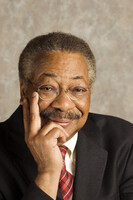 Interview: Price, Clement A., 1991 Clement A. Price was born in Washington, D.C., in 1945 and attended the D.C. public schools. He received his bachelor's and master's degrees from University of Bridgeport. After a year teaching African American history at Essex County College, Price joined the faculty at Rutgers-Newark in 1969, where he was initially hired as a part-time instructor. Soon after his appointment in Newark, he enrolled in the history Ph.D. program at Rutgers-New Brunswick, which he completed in 1975. Dr. Price taught at Rutgers-Newark for 45 years and established himself as one of the university's most esteemed faculty members. He is the recipient of numerous awards and honors, including serving as chair of President Obama's transition team for the National Endowment for the Humanities and vice chair of the Advisory Council on Historic Preservation. He has played leadership roles with many organizations in New Jersey, including the New Jersey State Council on the Arts, the Fund for New Jersey, the Newark Public Schools, the Newark Black Film Festival, the Newark Public Library, the Newark Education Trust, and the Save Ellis Island Foundation. Over the years, Dr. Price has published widely in African American History, Urban American History, and American Cultural Policy. He continued teaching history at Rutgers-Newark as Board of Governors Distinguished Service Professor until his death in 2014. The Clement A. Price Institute on Ethnicity, Culture and the Modern Experience at Rutgers-Newark was named in his honor.
Interview: Price, Clement A., 1991 Clement A. Price was born in Washington, D.C., in 1945 and attended the D.C. public schools. He received his bachelor's and master's degrees from University of Bridgeport. After a year teaching African American history at Essex County College, Price joined the faculty at Rutgers-Newark in 1969, where he was initially hired as a part-time instructor. Soon after his appointment in Newark, he enrolled in the history Ph.D. program at Rutgers-New Brunswick, which he completed in 1975. Dr. Price taught at Rutgers-Newark for 45 years and established himself as one of the university's most esteemed faculty members. He is the recipient of numerous awards and honors, including serving as chair of President Obama's transition team for the National Endowment for the Humanities and vice chair of the Advisory Council on Historic Preservation. He has played leadership roles with many organizations in New Jersey, including the New Jersey State Council on the Arts, the Fund for New Jersey, the Newark Public Schools, the Newark Black Film Festival, the Newark Public Library, the Newark Education Trust, and the Save Ellis Island Foundation. Over the years, Dr. Price has published widely in African American History, Urban American History, and American Cultural Policy. He continued teaching history at Rutgers-Newark as Board of Governors Distinguished Service Professor until his death in 2014. The Clement A. Price Institute on Ethnicity, Culture and the Modern Experience at Rutgers-Newark was named in his honor. -
 Interview: Shuford, Deborah, 2018 Deborah Shuford was born in Newark, New Jersey in 1959. Her parents grew up in Lowndes County, Alabama, before moving to Newark. For most of her childhood, her family lived in the Weequahic section. Deborah attended Chancellor Elementary School and Arts High School in Newark. During one summer in high school, Deborah attended the Technical Enrichment Program at Stevens Tech in Hoboken. From 1977 to 1981, Deborah went to Douglass College. She began as an engineering major and switched to journalism and English literature. Deborah earned her bachelor's degree in the Douglass College Class of 1981. Deborah worked for many years in the communications field. She interned at WOR-AM talk radio. She worked at ABC Radio and Television Network and then at the Public Broadcasting Service (PBS). In 2001, Deborah began studying for her master's degree at American University. After earning her master's in film in 2003, Deborah worked as a professor at institutions of higher education, including McDaniel College, Howard University and Rutgers University, where she developed a variety of courses in film studies and African American studies. She also worked as a producer, writer and documentary filmmaker. In addition to being an active alumna at Rutgers-New Brunswick, Deborah has volunteered at the New Jersey Tree Foundation and as a career coach at New Start. In the first interview session, recorded on June 8, 2018, Deborah discusses her family's history in Lowndes County, Alabama, notably her grandmother's involvement in the voter registration efforts spurred on by Stokely Carmichael and the Student Non-Violent Coordinating Committee in the summer of 1965. In discussing her childhood, Deborah talks about her family, siblings, parents' careers, traveling, education and neighborhoods in Newark. In the second interview, Deborah talks about the military service of her family members. She traces her family's roots in Alabama and her parents' migration to New Jersey. Growing up in the Weequahic section of Newark, she compares and contrasts the city before and after the Newark rebellion of 1967. In the third interview session, Deborah discusses her experiences during high school at Arts High in Newark. In 1977, she began attending Douglass College as an engineering major. She switched to journalism and recalls memorable professors Roger Cohen in journalism and Cheryl Wall in English. She describes student life and traditions at Douglass and the impact that Dean Jewel Plummer Cobb had upon her, as well as the college.
Interview: Shuford, Deborah, 2018 Deborah Shuford was born in Newark, New Jersey in 1959. Her parents grew up in Lowndes County, Alabama, before moving to Newark. For most of her childhood, her family lived in the Weequahic section. Deborah attended Chancellor Elementary School and Arts High School in Newark. During one summer in high school, Deborah attended the Technical Enrichment Program at Stevens Tech in Hoboken. From 1977 to 1981, Deborah went to Douglass College. She began as an engineering major and switched to journalism and English literature. Deborah earned her bachelor's degree in the Douglass College Class of 1981. Deborah worked for many years in the communications field. She interned at WOR-AM talk radio. She worked at ABC Radio and Television Network and then at the Public Broadcasting Service (PBS). In 2001, Deborah began studying for her master's degree at American University. After earning her master's in film in 2003, Deborah worked as a professor at institutions of higher education, including McDaniel College, Howard University and Rutgers University, where she developed a variety of courses in film studies and African American studies. She also worked as a producer, writer and documentary filmmaker. In addition to being an active alumna at Rutgers-New Brunswick, Deborah has volunteered at the New Jersey Tree Foundation and as a career coach at New Start. In the first interview session, recorded on June 8, 2018, Deborah discusses her family's history in Lowndes County, Alabama, notably her grandmother's involvement in the voter registration efforts spurred on by Stokely Carmichael and the Student Non-Violent Coordinating Committee in the summer of 1965. In discussing her childhood, Deborah talks about her family, siblings, parents' careers, traveling, education and neighborhoods in Newark. In the second interview, Deborah talks about the military service of her family members. She traces her family's roots in Alabama and her parents' migration to New Jersey. Growing up in the Weequahic section of Newark, she compares and contrasts the city before and after the Newark rebellion of 1967. In the third interview session, Deborah discusses her experiences during high school at Arts High in Newark. In 1977, she began attending Douglass College as an engineering major. She switched to journalism and recalls memorable professors Roger Cohen in journalism and Cheryl Wall in English. She describes student life and traditions at Douglass and the impact that Dean Jewel Plummer Cobb had upon her, as well as the college. -
 Interview: Venable, Bernice, 2015 Bernice Proctor Venable grew up in Somerville, New Jersey. In the interview, she discusses being raised by a foster parent after the age of thirteen and the support she received from her community in Somerville. She went to Douglass College, where she sang in the Rutgers University Choir and worked as a reporter for The Caellian. She majored in Spanish. Later, she earned her M.A. in Spanish Language and Literature from Rutgers, M.A. in Guidance and Counseling from Rider, and doctorate in Educational Administration from Rutgers. She went on to a career in education as a teacher, guidance counselor and administrator in Franklin, Somerville, Elizabeth, Irvington and Trenton. She served as Superintendent in Trenton for six years and in Irvington for two years. She testified on behalf of the plaintiffs in Abbott v. Burke, the landmark decision in which the New Jersey Supreme Court ruled that the state must ensure parity in educational funding between poorer urban school districts and affluent suburban districts. In 1992, she received an honorary Doctor of Laws Degree from Trenton State College (now The College of New Jersey). She and her spouse funded a computer lab at the Hale Center that is dedicated to Paul Robeson. After retiring as an educator, she joined AlphaGraphics, working in sales and marketing.
Interview: Venable, Bernice, 2015 Bernice Proctor Venable grew up in Somerville, New Jersey. In the interview, she discusses being raised by a foster parent after the age of thirteen and the support she received from her community in Somerville. She went to Douglass College, where she sang in the Rutgers University Choir and worked as a reporter for The Caellian. She majored in Spanish. Later, she earned her M.A. in Spanish Language and Literature from Rutgers, M.A. in Guidance and Counseling from Rider, and doctorate in Educational Administration from Rutgers. She went on to a career in education as a teacher, guidance counselor and administrator in Franklin, Somerville, Elizabeth, Irvington and Trenton. She served as Superintendent in Trenton for six years and in Irvington for two years. She testified on behalf of the plaintiffs in Abbott v. Burke, the landmark decision in which the New Jersey Supreme Court ruled that the state must ensure parity in educational funding between poorer urban school districts and affluent suburban districts. In 1992, she received an honorary Doctor of Laws Degree from Trenton State College (now The College of New Jersey). She and her spouse funded a computer lab at the Hale Center that is dedicated to Paul Robeson. After retiring as an educator, she joined AlphaGraphics, working in sales and marketing. -
Interview: Walker, Steven, 2016In his interview, Steven Walker describes his upbringing in the town of Montclair, New Jersey during the mid-1960s, his experiences as a first-generation college student studying journalism at Livingston College at Rutgers-New Brunswick during the early 1980s, and his career as a journalist in the 1980s, 1990s and 2000s. With family roots going back to Jamaica, Walkers' grandparents came from Mississippi and North Carolina. During World War II, his father, a Montclair native, served in the Red Ball Express in France after the Allies invaded Europe in 1944. During his early school years, he experienced diversity in Montclair that had not existed when his parents were growing up there. This continued into his years at Livingston College, where he became a founding member of the Rutgers chapter of Kappa Delta Rho, an organization with members coming from a wide variety of backgrounds. He was also a regular contributor to the Daily Targum and the Black Voice, both student-run newspapers operating at Rutgers. After graduating from Livingston College in the Class of 1986, he started his professional journalism career writing for the Herald and News in Passaic, New Jersey. He went on to work for such publications as The Star-Ledger, The Source, The Orange Transcript, The West Orange Chronicle and The East Orange Record. After working as a field investigator for the N.J. Department of the Public Advocate, he became an investigator for the N.J. Division on Civil Rights. Walker lives in Montclair, New Jersey with his wife and son.
-
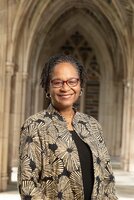 Interview: Wall, Cheryl A., 2015 Cheryl Wall (1948-2020) was a Board of Governors Zora Neale Hurston Distinguished Professor of English and former Chair of the English Department. Wall was an author and a specialist in Black women's writing, the Harlem Renaissance, and Zora Neale Hurston. She was a co-chair of the President's Council on Institutional Diversity and Equity. Joining Douglass College in 1972 as an assistant instructor, in her interview Wall described her role in the development of the college and its legacy today. She discussed the intrinsic value of the humanities in the context of a liberal arts education, student activism on campus, and the evolution of the Douglass Woman.
Interview: Wall, Cheryl A., 2015 Cheryl Wall (1948-2020) was a Board of Governors Zora Neale Hurston Distinguished Professor of English and former Chair of the English Department. Wall was an author and a specialist in Black women's writing, the Harlem Renaissance, and Zora Neale Hurston. She was a co-chair of the President's Council on Institutional Diversity and Equity. Joining Douglass College in 1972 as an assistant instructor, in her interview Wall described her role in the development of the college and its legacy today. She discussed the intrinsic value of the humanities in the context of a liberal arts education, student activism on campus, and the evolution of the Douglass Woman. -
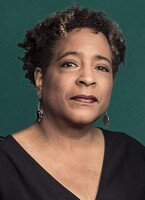 Interview: White, Deborah Gray, 2016 Deborah Gray White is the Board of Governors Distinguished Professor of History and Professor of History at Rutgers University. During her forty years at Rutgers, she has not only been a professor but also the co-director of "The Black Atlantic: Race, Nation and Gender" project at the Rutgers Center for Historical Analysis (1997-99), a research professor at the Rutgers Institute for Research on Women (1999-2000), and chair of the history department (2000-03). As an Americanist who specializes in African American and American Women’s history, Professor White is especially interested in issues of identity and the intersection of race, class, gender, and sexuality. In this interview, Dr. White begins by talking about the influential women in her childhood. Then the interview transitions to her work as a historian and what her title at Rutgers means. She also discusses her work directing a major institutional research project that uncovered the history of enslaved and disenfranchised populations in Rutgers history. The project resulted in the publication of the book Scarlet and Black: Slavery and Dispossession in Rutgers History. The interview ends with her advice for young Black women on how to obtain the type of success Dr. White has achieved.
Interview: White, Deborah Gray, 2016 Deborah Gray White is the Board of Governors Distinguished Professor of History and Professor of History at Rutgers University. During her forty years at Rutgers, she has not only been a professor but also the co-director of "The Black Atlantic: Race, Nation and Gender" project at the Rutgers Center for Historical Analysis (1997-99), a research professor at the Rutgers Institute for Research on Women (1999-2000), and chair of the history department (2000-03). As an Americanist who specializes in African American and American Women’s history, Professor White is especially interested in issues of identity and the intersection of race, class, gender, and sexuality. In this interview, Dr. White begins by talking about the influential women in her childhood. Then the interview transitions to her work as a historian and what her title at Rutgers means. She also discusses her work directing a major institutional research project that uncovered the history of enslaved and disenfranchised populations in Rutgers history. The project resulted in the publication of the book Scarlet and Black: Slavery and Dispossession in Rutgers History. The interview ends with her advice for young Black women on how to obtain the type of success Dr. White has achieved. -
Rutgers Oral History ArchivesBased at Rutgers University–New Brunswick, the Rutgers Oral History Archives (ROHA) has recorded numerous interviews with Black participants, primarily Rutgers alumni and faculty. The collection also includes several interviews with Black New Jerseyans who are not affiliated with Rutgers University. Many of the interviews highlight the military experiences of Black veterans. ROHA interviews usually trace the full course of the person’s life, detailing their family history and experiences beginning with childhood memories. Established in 1994, ROHA grew out of a project that originally focused on World War II memories. Since then, ROHA has expanded to include life-course interviews on many themes related to Rutgers and New Jersey social and cultural history. ROHA frequently partners with Rutgers faculty to conduct and preserve oral history projects around specific research topics, such as urban redevelopment in New Brunswick and Black activism in Camden. ROHA's digital collection includes over 1,275 oral history interviews with full-text searchable transcripts; the audio recordings are not published. Select video interviews recorded as part of the City of New Brunswick Redevelopment Oral Histories Project have been published digitally. From ROHA’s establishment in 1994 until 2014, it appears that only approximately 1% of the interviewees were African American. A greater effort to record interviews with Black participants resulted from the 2015 Black on the Banks conference that brought together African American alumni of the 1960s generation. In five years since the conference, ROHA doubled the number of Black voices in the collection. The effort to record interviews with African American alumni, faculty, and staff is ongoing.
-
Scarlet and Black InterviewsDr. Deborah Gray White, Board of Governors Distinguished Professor of History at Rutgers University–New Brunswick and the founding director of the Scarlet and Black research project, has conducted several interviews with a focus on African American history and athletics at Rutgers University. These interviews have been integrated into the Rutgers Oral History Archives (ROHA) digital collection.
-
Women, Education and Leadership at RutgersThirteen individuals were interviewed by filmmaker June Cross for the documentary From the Boarding House to the Boardroom: 250 Years of Women at Rutgers, which was produced by the Institute for Women’s Leadership Consortium, in celebration of Rutgers 250th Anniversary in 2016. The interviews capture the history and evolution of Douglass Residential College over the past several decades. The Margery Somers Foster Center has made the the full transcript and video recording of each interview available as part of the Women, Education and Leadership collection at the Rutgers University Libraries Digital Collections portal. This collection includes interviews with two Black faculty members: Cheryl Wall and Abena Busia.

